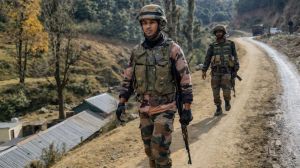Free, but also secure
Our armed forces have maintained their professionalism and apoliticalness in a polity given to frequent combustions. An institution that sur...

Our armed forces have maintained their professionalism and apoliticalness in a polity given to frequent combustions. An institution that survives such tests by fire also develops the capacity to respond quickly, firmly and correctly to complex situations. Thus the withdrawal by Army chief General J J Singh of his earlier order taking his force out of the purview of the right to information RTI law. As we commend him for his decision, we must say, with equal conviction, that we broadly agree with his original argument8212;the army, and the other two services, should be treated differently from civilian institutions under the RTI regime. Indeed, paramilitary forces have been treated differently. There8217;s no reason why the army, which has had to double up as an internal security force as well, shouldn8217;t be accorded the same status under RTI.
Remember that 8220;information8221; in the new law is very broadly defined. That is marvellous when it comes to, say, ministries. But for a security force, a law that requires disclosure of 8220;records, documents, memos, e-mails, opinions, advices, press releases, circulars, orders, logbooks, contracts8230; data held in any electronic form8221; poses unsolvable dilemmas between transparency and security. This newspaper takes the business of making the powerful accountable very seriously. But we take the business of national security equally seriously. Now that General Singh has shown that it is possible to act with grace even when battling a genuine grievance, now that the defence ministry has got back its full, unchallenged say over how to apply RTI to the forces, the least our services deserve is a quick, firm and correct direction from the political authorities.
Separating the armed forces functions and keeping a few, rigorously defined areas open to disclosure is one option. But even there care must be taken to maintain operational security. For example, the army shouldn8217;t have to disclose details of an anti-terror operation under disclosure norms on human rights. If bureaucrats think making such provisions is difficult, they only need to remember that the armed forces do a very difficult job.
- 0123 hours ago
- 0222 hours ago
- 0324 hours ago
- 041 day ago
- 051 day ago































